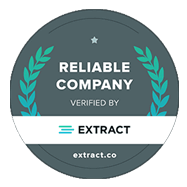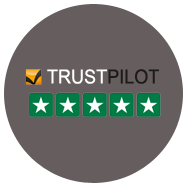Enterprise itself is obviously a very general term but when applied in the context of size of a business it generally means a large, usually multinational organization. These outfits will typically be made up of multiple individual organizational units with their own budgets and objectives.
More than any other organization, enterprise businesses need to maintain a scalable and reliable web presence to remain competitive. To that end, many IT leaders of large-scale organizations have usually looked upon expensive web solutions requiring proprietary support contracts to ensure the growing needs. More than a decade into its existence and now powering more than 33% of the web, WordPress has become the preferred choice for even the largest of firms.
When you look at the world’s top business websites, WordPress remains a key player. According to Built With, out of the top 10,000 websites on the web, WordPress powers approximately 26 percent of them — and what’s more? WordPress powers approximately 14 of the world’s top 100 websites.
The Case for WordPress as an Enterprise-Grade CMS
First of all, let’s evaluate the reasons why such big names have gone for WordPress as their preferred web CMS.
Plugins
WordPress’s Plugin Directory has more than 50,000 plugins readily available for use. These plugins can allow enterprises to add a whole range of features and capabilities to their WordPress site.
The wide range of available WordPress plugins give companies the capability to customize and expand the functionality of websites with relative ease when compared to other enterprise CMS solutions.
Integration Capabilities
WordPress, much like a more traditional enterprise-grade CMS, can integrate with “several business-critical platforms” like CRM systems and marketing automation platforms.
Headless Capabilities
While WordPress does not come as a headless CMS solution out-of-the-box, the emergence of the WordPress REST API means it can definitely act as one.
Ease of Use
A big factor behind WordPress’s popularity can be credited to its ease of use in almost every dimension of the backend interface.
The Case against WordPress as an Enterprise-Grade CMS
Scalability Issues:
Once you start believing on said website for an important part of your business, the requirements you have for a CMS can dramatically shift and, what once seemed like a handy approach to building your site, can quickly change into a highly complex and expensive environment to maintain down the road.
Security Issues:
The open-source nature of themes, widgets, and plugins can leave WordPress extremely exposed to cyber attacks.
ADA Compliance Issues
Many plugins and widgets on WordPress put enterprises at risk of non-ADA compliance.
Lack of Enterprise Support
Enterprises require 24 hrs support to ensure their digital presence is live, secure and performing well. That particular support is missing in WordPress.
So the real question is : Is WordPress Fit For the Enterprise Market?
Can WordPress support all the digital needs of an enterprise company? The simple answer is a mixed yes and no. It can integrate with third-party tools quite easily and it’s easy to use.
But the real question here is whether you should go for WordPress to power your enterprise-scale web presence? The one thing that is clear is WordPress becomes more and weaker as it scales.
Updates happen, plugins break, developers stop maintaining their themes, hackers target your site, and you can easily end up with a very weak digital presence that seems more like a house of cards than a robust enterprise-grade CMS. The solution for the enterprises who insist on using WordPress seems to be partnering with a dedicated WordPress-centric agency having 24 hours support that can keep an extremely close eye on their WordPress-powered ecosystem — as anything less than that would probably see that house of cards falling apart.










